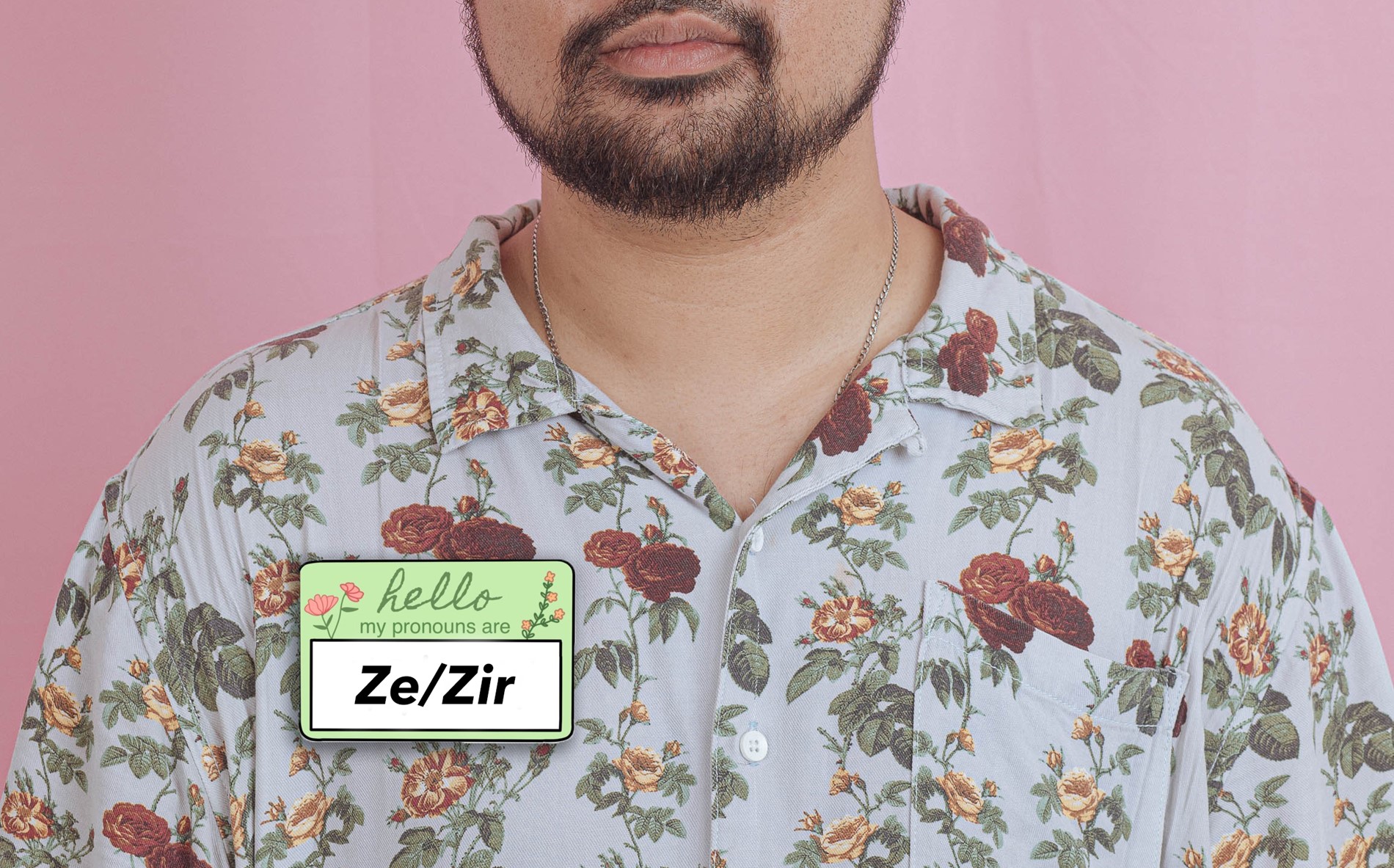Help, I'm Confused About Pronouns

I'm new to this and a bit confused. I don't understand how you can tell '#thiccboi' is not someone’s preferred pronoun? Aren't we meant to be respectful to everyone's personal identification? Sure it's a bit odd, but isn't ze and zir?
Jess
Hey Jess, thanks for reading these little articles, I assume the #thiccboi reference is from my tips for being less of a dick on Grindr? It’s okay to be confused, and asking questions is how we all learn, so thanks for stepping up and seeking an answer.
A couple of quick things to get started:
- People’s pronouns aren’t "preferred" - I know that language did float around for a while, so it may just be the most recent wording that you’ve personally come across, but it’s important to reinforce that people’s pronouns are non-negotiable - neither their gender nor pronouns are “preferred”. You can simply refer to “someone’s pronouns”.
- It also sounds like you’re coming from a genuine place, but this type of question is also very close to some of the rhetoric people get from anti-trans folks, who often fake confusion in order to try and undermine the progress we’ve made in supporting non-binary and trans people. But, I’m going to answer earnestly in the hope that is also how you’re asking.


Including pronouns in your email signature is a quick and easy way for cisgender people to have a powerful and positive impact.
Learn more about how you can support pronoun use in your workplaceIncluding pronouns in your email signature is a quick and easy way for cisgender people to have a powerful and positive impact.
Learn more about how you can support pronoun use in your workplaceThe very, very short answer is to ask them.
At the end of the day, it’s about respecting people who have historically been discriminated against and denied the basic rights that cisgender people (someone whose gender matches the sex they were assigned at birth) afford themselves.
Like you’ve said, we should be respecting all people’s pronouns. Something as simple as validating the person in front of you and acknowledging them appropriately can make such a difference. We know that mental health and physical and sexual health are interlinked, so that small act could have roll-on effects in helping support them as a whole person.
If someone tells you/lists their pronouns on an app, use them even if you're not sure they're being genuine. You can even ask when starting a chat, “Hey! Just making sure, before we get talking, what are your pronouns?”. If they’re being a dick and trying to play some sort of unfunny “joke”, you’ll find out pretty quick - and that should tell you enough about them to know you probably don’t want to keep chatting anyway.


Ze/zir are not actually new. They’re intentionally genderless pronouns and have been in popular use for a good while now and were found in dictionaries and writings for decades before then. There are many neo-pronouns (which just means “new”) that come into use as people find they need better ways to express their own gender.
But new is just new, it doesn’t make them odd. We tend to describe things as “odd” when we don’t understand them or haven’t encountered them enough - which is exactly why it’s so important to respect and regularly use people’s pronouns. This normalises them and increases people’s exposure to different pronouns and gender identities. Sharing your own pronouns, even if you are a cis person, helps make it more comfortable for people of all genders to share theirs, meaning fewer and fewer people will think it’s “odd”.
It’s important to remember that all language is made up and we create new words when we need them. Ze/zir fills a need that other pronouns didn’t, it’s no less valid than using he/him - it’s just been around for less time… but then again so are words like "Googling" and "Zooming". Language grows constantly!
All language is made up and we create new words when we need them.
I hope this helps. The key is to remember that there’s a person on the other end of those pronouns who deserves respect and dignity. Ask questions (in a respectful way) if you’re genuinely confused. While people don’t necessarily want the burden of constantly explaining themselves to every new connection - if you’re coming from the right place and wanting to get it right for that person, I’m sure they’ll help you.



